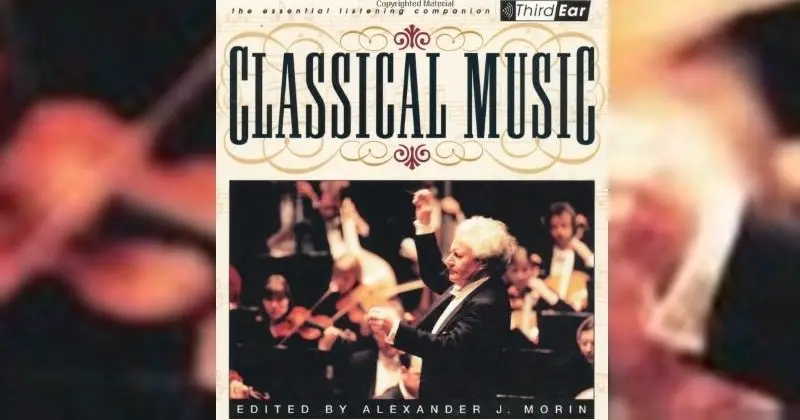
Classical Music: Third Ear: The Essential Listening Companion (by Alexander Morin) is a guide to historical and contemporary classical music that examines major works by 500 composers worldwide.
This is an essential guide with a wealth of information on so many composers and their various performances and releases over the years. The book covers exemplary recordings of symphonies, operas, concertos, choral pieces, chamber music, piano pieces and other works performed by an international spectrum of premier conductors, musicians and vocalists.
You will find incisive, often anecdotal critiques that define the distinctive style and interpretation of thousands of selected works and recordings. Besides the main composer section, the author has allotted sections to genres and instruments/artists as well.
The way it is laid out, usually a composer entry begins with a short assessment of the composer’s work and historical significance, followed by a discussion of the recordings. The index makes it so easy to reach out to individual performances.
The best part of the book is how it succinctly tells you what the characteristics of each performance are.Composers profiled and reviewed include: Bach, Beethoven, Bernstein, Brahms, Chopin, Copland, Czerny, Debussy, Gershwin, Gilbert & Sullivan, Handel, Haydn, Mozart, Prokofieff, Puccini, Reich, Schubert, Tchaikovsky, Varese, Wagner and hundreds of others.
Shortcomings:
- Published in 2002. While it does a reat job of revieiwing the music before 2000, it won’t help you with the new stars of classical music.
- Coverage of a few important composers is sparse. For example Anton Bruckner’s music is covered in about a page and a half. While covering Richard Wagner’s “Ring” cycle, the author repeatedly makes a cursory comparison of Solti to Bohm and, usually, Karajan, and concludes by almost invariably pronouncing Solti as the best. Several cycles are completely omitted from his discussion.
Strengths:
- Most major composers are covered comprehensively.
- You will find recordings here that are not mentioned in the Penguin or Gramophone counterparts. For example, the Beethoven symphony cycle which Andre Cluytens made with the Berlin Philharmonic from 1958-61.
- The critical judgments of the contributors are more useful to the CD collector.
- The index is well laid out. You can locate every recording of a particular conductor or performer, that’s reviewed in the guide, using the index.
Read user reviews of this book on Amazon
How does this boo compare to the The Penguin Guide to Compact Discs?
The main competition to this work is The Penguin Guide to Compact Discs. Both are mammoth works, but some minor composers/works in one are not in the other (and vice versa). For certain major composers, Penguin is superior, but this book covers “genre” music not included in Penguin (the film music of Korngold, for example, is not mentioned in Penguin) and more complete entries on important minor composers (such as Viotti). Many classical music enthusiasts come to know about this book after reading review of the Penguin guide (which omits countless invaluable interpretations by great conductors “of the past”). Ideally, libraries should own both books to cover the classical scene fully.
Overall, the strengths of this guide far outweigh the drawbacks. If you are in the process of building a good library of classical recordings, my recommendation to you would be to “buy this book.” Classical Music: Third Ear: The Essential Listening Companion by Alexander Morin is recommended for all libraries.
KeytarHQ editorial team includes musicians who write and review products for pianists, keyboardists, guitarists & other musicians. KeytarHQ is the best online resource for information on keyboards, pianos, synths, keytars, guitars and music gear for musicians of all abilities, ages and interests.



Leave a Reply